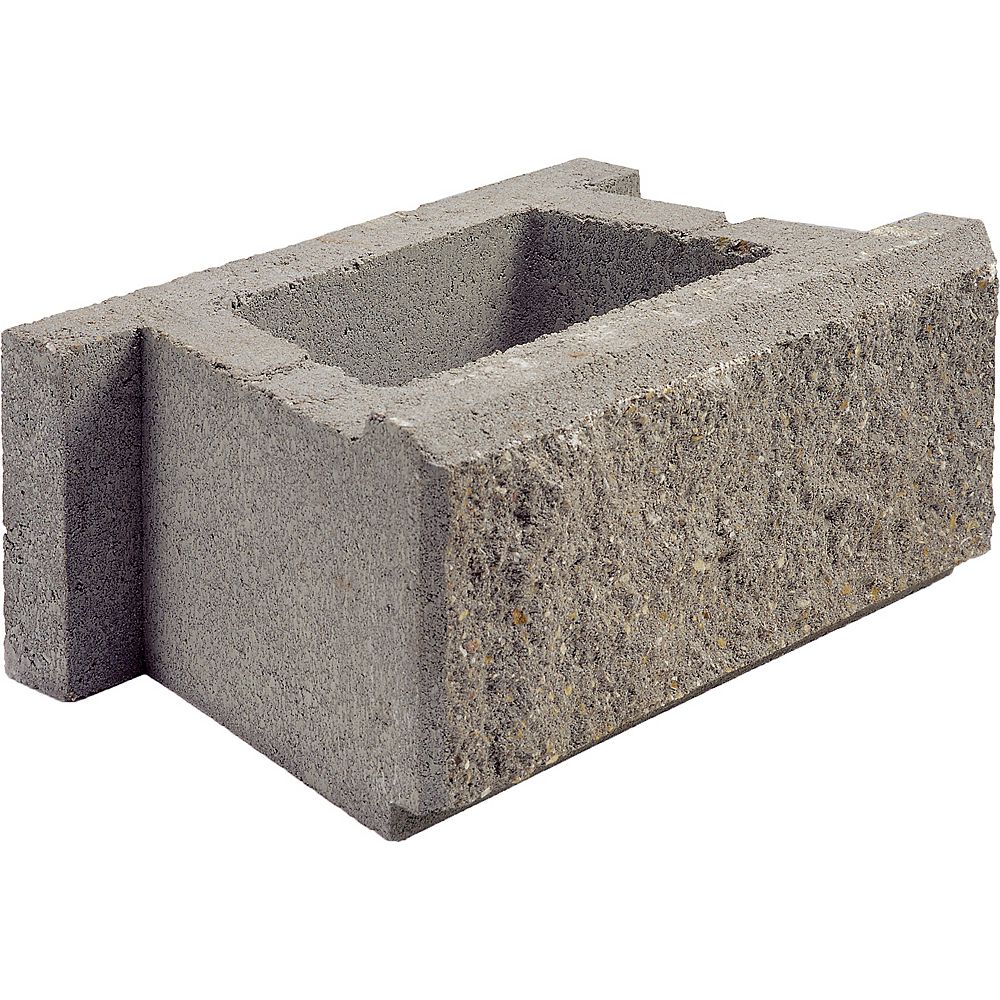When it comes to building a retaining wall there can be a lot of confusing choices to make. You could use any combination of timber, steel, concrete, wire, or boulders; but which options are going to stand the test of time without costing you an arm and a leg.
If you have already chosen to build a retaining wall out of concrete blocks, keep reading for some information on how to choose between large and small block units.
Although there are many options out there, this article will specifically evaluate the difference between large and small-block products. The availability of specific block units might vary, depending on your location, but the first step to building a block retaining wall is deciding whether you want to use large or small blocks.
Small Block Retaining Walls
Small block retaining walls are one of the most common wall types found around both residential and commercial properties in Calgary (and most cities). When you think of a small block wall it is probably either Allan Block or Cornerstone products that will come to mind. These walls are great for a number of reasons:
- Can be handled without the use of equipment
- Simple enough for homeowners to build their own small walls with
- Versatile so that landscaping/retaining wall contractors can build much taller walls with a properly engineered design
- Easier to build in locations with poor access

Unfortunately, there are also some drawbacks that come with selecting small blocks for your project:
- Without an experienced contractor installing the retaining wall, it is easy to overlook crucial installation details
- Deformations or installation mistakes are more visible in a small block wall
- Consistent subgrade soil conditions are critical to prevent “frowns” or “smiles” in the retaining wall (poor subgrade soil or localized rigid structures that cause one section of blocks to settle more or less than the rest of the wall)
- Overlooking the requirement for geogrid can cause a new wall to fail within a very short period of time
While small blocks are great if you want to build a retaining wall without any heavy equipment, they can also be so approachable that an inexperienced installer might create a messy and expensive mistake. If you have an experienced retaining wall contractor that has the right equipment to handle large block units, they can very often be a stronger, and possibly more economical solution. A long-lasting and great-looking wall can be constructed by a first-time wall builder if you have an experienced geotechnical engineer on your side to help you through the process.
Take a look at our post on small block options here, if you think a small block wall is the right fit for your project.
Large Block Retaining Walls
If equipment large enough to move heavy concrete blocks is available, large block retaining walls can be the quickest to build, the strongest, and sometimes even the cheapest option for your project. Some commonly found large blocks in Calgary include Redi-Rock, Verti-Block, and Magnumstone. Each of these products also has their advantages, which you can find more information on here. The choice of a large block units has many advantages:
- Taller walls can be built without requiring geogrid reinforcement
- Extremely tall walls are possible when using geogrid reinforcement
- Only 1-3 people are needed to install a large block wall with the right equipment
- Large retaining wall projects can be completed quickly with large blocks
- The durability of large block units is typically better

If speed and durability are your main goals, a large block is likely your best choice. Large blocks are less commonly found on residential projects, and more common on commercial, industrial, and municipal projects. Some things that might prevent a large block wall from being your best option are:
- Difficult access to the proposed wall location
- Higher material cost per area of retaining wall face
- Lack of heavy equipment capable of handling the large block units
Conclusions
Small blocks are often best for small projects, while large blocks are best for durability and installation speed. Don’t overlook a good engineer as an experienced engineer will save you money while helping decrease your risk and increasing the lifespan of your wall system.
The choice between large and small block units is not always an easy one. If you need help making any decisions or just want to chat about retaining walls for a while, please contact us. Our engineers would love to help you find the perfect product to use on your project.

